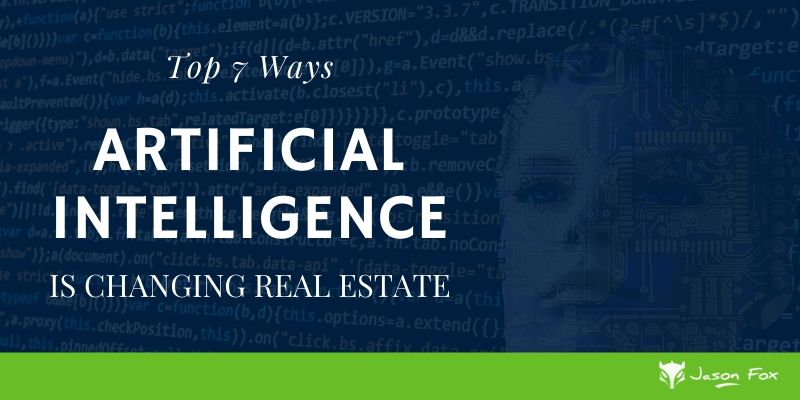With the worldwide market size of $280.6 trillion and around $9.6 billion in technology investments, the real estate industry has become one of the biggest ones in the world.
One of the significant reasons for this growth is rapid urbanization and increasing population.
Real estate is one of the volatile markets in US, but still plays an integral role in the US economy. With many of the Americans wishing to own a perfect place to live in, which comes at a hefty price, the real estate prices are shooting up like crazy. Some of the states which have seen a sharp increase in the prices are California, Hawaii, New York, Massachusetts, Oregon, Alaska, Rhode Island, and Connecticut.
Find the below information for a better idea:
The average home price in Seattle is about $800,000 more than twice the national average.
A 950-sq-ft two-bedroom apartment will run you about $3,000 a month in Boston.
The National Association of Realtors has also predicted that the national median existing home price could rise to around $266,800, which is almost a growth of 3.1% from the year 2018, and in 2020, there will be a rise of $274,000 in the median home price.
The upcoming Hudson Yards redevelopment project in New York City will be catalyzing some of the major expansions by 2020. The first of the two phases of this project has been already opened in 2019. It will contribute to around $19 billion annually to the GDP of New York City, generating more than $500 million of the tax revenue.
How an odd combination of AI and real estate will be helpful?
As almost every industry is betting on artificial intelligence, the real estate industry is also not left behind. Most of the people who were skeptical about this combination have started seeing positive results.
Check the video below of some C-level executives about the impact of AI on real estate:
AI is revamping the entire process, the way the real estate industry works!!!!!!
It is not only changing the decision-making process of an organization, but also improving the efficiency of the tasks.
How AI is changing real estate in 7 different ways
1. Predicting property market values:
AI is helping the real estate agents for predicting the future value of the property in the target market. The AI technology makes it possible by combining the marketplace data and CRM. It helps to link information from various sources, including transportation, crime, schools, and marketplace activity.
Skyline AI, the real estate investment technology company which has its headquarters in New York has been working on the AI platform for real estate; it can accurately predict the future rent, and identify the market trends for understanding business opportunities.
2. AI helping to provide better recommendations:
Agents communicating with the clients in the real estate industry often face a challenge in understanding their customers. This creates a problem as without that, they cannot suggest the best property options to their customers.
Agents can follow a process by converting every learning from communication with their client into data further to be used by AI. They can then provide better recommendations, thus resulting in a win-win scenario for both parties.
3. AI for the property sellers:
AI is helping the property sellers in minimizing the dependency on the real-estate agents. It has been a trend for many years, whenever a property owner wants to sell a property, many of them would rely on the real-estate agents, who earn the commission from both the sellers and buyers.
AI is helping property sellers to earn more, by removing the dependency on the middle agents.
4. Improving the buying process:
Purchasing a house can be a tedious process for anybody, but gradually machine learning and AI is changing the way it works. It is refining the buying process to a great extent.
JetClosing, one of the companies applying machine learning for a faster, user-friendly, and transparent real estate experience for the seller, buyer, and the agent is one of the real-time examples where AI is being successfully used. The company has successfully removed the paper forms and brought everything to the cloud.
5. Mortgage calculations:
Mortgage calculations is one of the tricky and complex matter. With the help of AI, real estate agents can complete the process easily and efficiently. The smart algorithms review the mortgage applications and remove the errors from it. It can also check various income sources and analyze the key documents.
CoreLogic is an AI-powered platform that provides brokers and the real estate agents a tool for checking the documents, income calculations, and loan underwriting.
AI in the lending process covers:
Determining the creditworthiness, of those without credit histories.
Streamlining the loan process
Improving the customer experience especially for the borrowers
6. Maintaining long-term customer relationship:
A smart AI and CRM system can help the agent in maintaining the customer relationship, even after the sale process is completed. It will be not like after the purchase, the customer will be out of the agent’s mind.
The technology will assist the customers and agents systematically while buying more properties and renting or selling, respectively.
7. Demand for the smart buildings:
There is a growing demand for smart buildings in the developed nations. These buildings provide ultimate security with facial recognition technology. Smart LED lights and the self- programming thermostats are other examples of a responsive building system. All these are useful for the property manager and human analyst in forecasting the costs.
HVAC, elevator maintenance, energy management, and occupant tracking, which are designed for enhancing the inhabitant’s experience, reduce the operational costs, and improves workplace productivity.
The global smart building market, will grow to around $61,900 million by the year 2024, proving AI has an essential role in this aspect.
Main challenges in implementing AI for the real estate industry?
The main challenges are with the programme systems, which enable the automatic evaluation of the data and the reading. Artificial tools would be able to evaluate the real estate contracts and other important ones, beneficial both for the buyer and the seller, but the challenge here is again the data security and privacy.
The owners will have to find a way to balance the need for the growth and the functionality, while protecting the sensitive information. The real-estate sector needs an efficient interaction between human decision making and artificial intelligence.
Some of the organizations which are seamlessly using AI in their process are:
- PropertyNest:
Based on the proprietary algorithm, the site is helpful for the New Yorkers for renting or buying a new home. The process is seamlessly followed based on the credit score and features which the customers want. Matches are mostly based on the strict vetting process, credit score, income, and savings are included in this.
- Nobbas:
Nobbas is one of the high performing real estate search platforms for both the renters and buyers. The collaboration tool is what makes it stand out. The best feature about this software is that it provides a Tinder-like interface to the users, which allows swiping on the properties which they don’t like and clicking on the properties which they like.
- HomLuv:
The HomLuv site uses AI to help people find newly built-homes across the country based on the design features. Customers will be able to view the photos, floor plans and videos of the new homes to be added whatever they want to their collection. Co-buyers can then collaborate with each other to find out if there is an overlap of opinion.
- Zillow:
Zillow is another real estate company using AI efficiently. The technology here relies on the neural network trained on a large number of photos and home values for reading the photos in the main listings for the relevant information. The resulting estimates are also made by the metrics for predicting the property value.
- Compass:
The AI technology in the CRM platform helps the clients in contacting the customers when they are ready-to-buy. It also autodrafts the email, thus speeding up the process.
- RedFin:
RedFin automates the property recommendation process with the incredible AI tool. Data even suggests that it has complete knowledge of the user’s taste. It has been seen that the users are clicking more on the suggestion by this matchmaker than their search criteria.
SUMMARY
The commercial real estate market in US alone is worth $16 trillion, and AI has changed the way the industry works.
Mortgage lenders, appraisers, and developers are all experiencing this change. AI is making the realtors more efficient. The AI-powered algorithms are able to generate property recommendations tailored to meet the specific needs of each of the customers.
Standardization transparency, and analyzing the data is essential in the real-estate industry, to provide good results for all the people involved in this process, the buyers, sellers and agents. AI has been successfully executing this process, elevating the profits of the industry as a whole.
2020 will see more transformational and disruptive changes, with AI getting fully implemented in the real estate industry.
Bio
Robert Jordan, a seasoned marketing professional with over 10 years of experience, currently working as Media Relations Manager at InfoClutch Inc, which is a leading supplier of most sought after technology database including SAP customers list, AWS clients list & many more technologies. His passion is writing. Now he works at StudyClerk.com. Always open for new ideas & discussions.









A great piece that sheds much needed light on AI ML for Real Estate and its impact on business as there are many new details you posted here. Sometimes it is not so easy to build a “AI ML for Real Estate” without custom knowledge; here you need proper development skills and experience. However, the details you mention here would be very much helpful for the beginner.